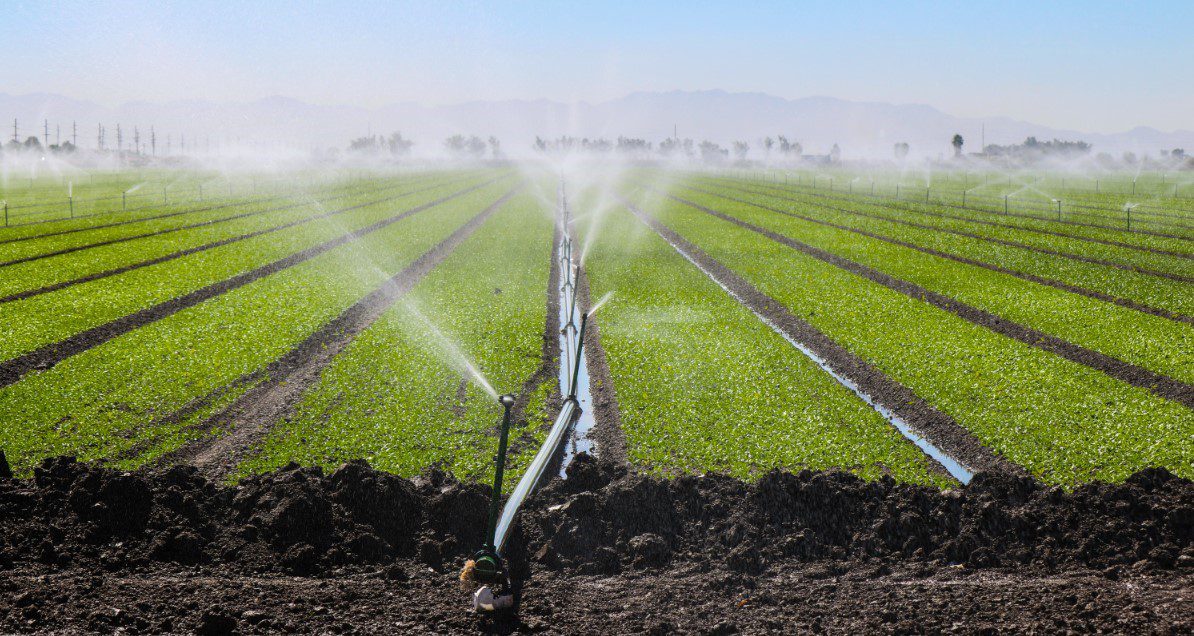December 4, 2023 — The Bureau of Reclamation announced Friday that the Biden-Harris administration reached a significant agreement with the Imperial Irrigation District (IID)
that the Biden-Harris administration reached a significant agreement with the Imperial Irrigation District (IID) as part of a broader effort to address the ongoing drought crisis. The agreement aims to conserve about 100,000 acre-feet of water in Lake Mead in 2023. Funded by the Investing in America agenda, this initiative allocates approximately $77.6 million for various water conservation and efficiency projects.
as part of a broader effort to address the ongoing drought crisis. The agreement aims to conserve about 100,000 acre-feet of water in Lake Mead in 2023. Funded by the Investing in America agenda, this initiative allocates approximately $77.6 million for various water conservation and efficiency projects.
The Larger Plan.
This agreement is just one aspect of a comprehensive strategy to safeguard the Colorado River System. It includes investments from the Inflation Reduction Act, contributing to the largest climate investment in history. The aim is to enhance water conservation across the West, ensuring the system’s stability for over 40 million people reliant on it.
Ongoing Efforts.
The Bureau of Reclamation and IID are also working towards an agreement for 2024-2026. Together, these efforts are expected to conserve up to 800,000 acre-feet of water over three years,  significantly raising Lake Mead’s levels.
significantly raising Lake Mead’s levels.
IID’s Role.
IID’s Board unanimously approved the 2023 System Conservation Implementation Agreement (SCIA) with the U.S. Bureau of Reclamation on December 1. This move is crucial for the Imperial Valley, as the Colorado River is its sole water source. IID has also pledged to support the Salton Sea with $70 million from federal funding.
IID has conserved over 7.7 million acre-feet of water since 2003, with 1.5 million generated through the On-Farm Efficiency Conservation Program since 2013.
Imperial Valley farmers and IID continue to ramp up water conservation efforts annually, utilizing advanced irrigation technologies and sustainable farming practices, including the installation and use of sprinklers, drip systems, field reconfiguration and precision land-leveling, tailwater return systems, and other field-level conservation measures.
Imperial Valley remains one of California’s and the Colorado River Basin’s top agricultural producers, with one in every six jobs directly related to agriculture, the backbone of the local economy.
Collaborative Efforts.
IID’s On-Farm Efficiency Conservation Program will generate the conserved water. This effort showcases the importance of collaboration among various water districts and federal agencies.
IID’s Long-term Vision.
IID’s commitment goes beyond immediate conservation. There’s a focus on long-term sustainable management of the Colorado River and continued advocacy for the Salton Sea’s restoration.
Additional Actions and Investments.
Besides the IID agreement, 18 other agreements in Arizona will conserve up to 348,680 acre-feet in Lake Mead in 2023. The Lower Basin states have committed to conserving 3 million acre-feet by 2026, with 2.3 million acre-feet funded by the Inflation Reduction Act.
The Bipartisan Infrastructure Law is injecting $8.3 billion over five years for various water projects. These include water recycling, storage, and safety enhancements.
Impact on Lake Levels.Due to these conservation efforts, the risk of critical low levels in Lake Powell and Lake Mead has reduced significantly. Lake Mead is currently about 40 feet higher than projected last year.
Specific Investments.
Key investments include:
include:
- $281 million for 21 water recycling projects.
- Up to $233 million for the Gila River Indian Community.
- Over $73 million for water delivery system repairs.
- $71 million for 32 drought resiliency projects.
- $50 million for Upper Colorado River Basin infrastructure.
- $20 million for small surface and groundwater storage projects.
Statements from Key Figures.
Wade Crowfoot, Dan Denham, and Adán Ortega, Jr., representing various water authorities, have praised the collaborative efforts and highlighted the importance of flexibility and consensus in ensuring a sustainable future for the Colorado River Basin:
and highlighted the importance of flexibility and consensus in ensuring a sustainable future for the Colorado River Basin:
Wade Crowfoot, Secretary, California Natural Resources Agency:
“A year ago this month, the Colorado River system was facing near-term collapse. Today, the system is stabilized for coming years thanks to IID and other water agencies across California and the Southwest stepping up to conserve water. These were not easy decisions, and leadership from the U.S. Bureau of Reclamation and funding provided by the President and Congress has been pivotal to these emergency actions. Now, as these near-term conservation programs stabilize Lake Mead and the whole Colorado River system, water agencies across the region are working together to chart a sustainable future for the Basin. We can be proud of our collective progress in recent months while we recognize there is much important work ahead.”
Dan Denham, General Manager, San Diego County Water Authority:
“The San Diego County Water Authority is pleased to partner with the Imperial Irrigation District, Metropolitan Water District and the U.S. Bureau of Reclamation on a mutually beneficial exchange agreement that will help bolster the river for all users. It is this kind of flexibility and consensus planning that will pave the way for a more sustainable river, and it is another example of the leadership California water agencies have shown over the past 20 years since the signing of the QSA.”
Adán Ortega, Jr., Chair, Metropolitan Water District Board of Directors:
“This partnership between Metropolitan, Imperial Irrigation District, San Diego County Water Authority and the Bureau of Reclamation is one example of how solutions developed collaboratively can benefit everyone. Our individual efforts to reduce our reliance on the Colorado River can be magnified by our growing and mutual interdependence leading to creative and lasting solutions, where the people we all serve win, as does the environment.”
Image Source: Imperial Irrigation District’s press release.


Leave a Reply